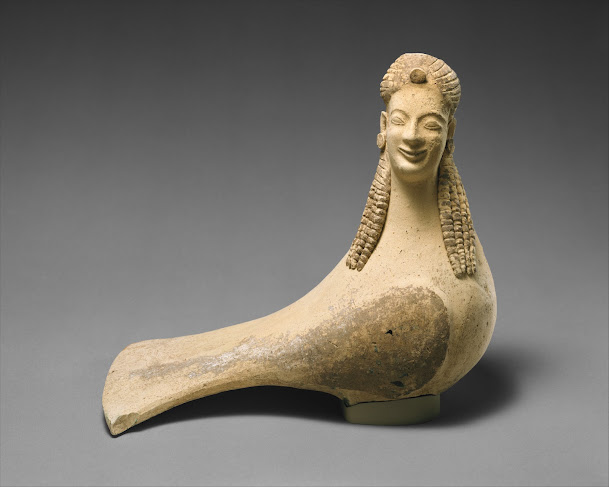But back to our friend Publius Ovidius Naso, doomed to die in exile because “of a poem and a mistake.” His Metamorphosis is a cannily selected and eternally beguiling compendium of Greek and Roman tales about passion-sparked transformations. Zachary Mason’s Metamorphica reimagines some of its best-known selections, in brief stories lightly seasoned with antiquity and organized into literal constellations (there are star maps!) oriented toward emotions sparked by Aphrodite, Athena, Zeus, Nemesis, Dionysus, Apollo, and Death. (Mason did something similar in The Lost Books of the Odyssey, an enjoyable read recasting some parts of that epic and filling in some beguiling gaps) Metamorphica is clever and fun, but because it is clearly a single mind/sensibility playfully inhabiting many characters, the voices and stories blur into each other a bit. These stars are a little fuzzy.
Mark Prins’ The Latinist turns a single myth—Apollo’s attempted rape of Daphne, which she escapes by painfully transforming into a tree—into a modern-day academic thriller, hinging on the power imbalance between a toxic male advisor and a female PhD candidate, poisonous recommendation letters, archaeological digs, and the attribution of ancient Roman poetry fragments. It was captivating—I found myself holding my breath and muttering “Oh, NO” at a section involving an academic conference and PowerPoint presentations, of all things—until a wild swerve at the end broke the spell with a sex scene that struck me as a manifestation of unbelievable/depressingly standard male wish-fulfillment over character integrity/plausibility.
I am partway through rereading Ted Hughes’ Tales From Ovid, an adroit and particularly beautiful rendition of 24 myths, conjuring the mesmeric shapes of stories twisted and refined through a thousand years of telling and thinking. This bit, from “The Rape of Proserpina,” tells of how the Sirens came to be—Proserpina/Persephone’s friends, who looked for her after Pluto/Hades stole her away to be his bride in hell:
... they too had gone searching for her
All over the world. In the end
They prayed for wings to cross the sea
And tell the ocean depths of their trouble.
The gods consented, and the amazed girls
Saw their bodies equipped with golden plumage
And the wings and feet of birds. But their singing,
So loved by the gods, escaped this mutation,
Their tongues, their throats, their voices remained
unaltered—
Live shrines of unearthly human voices.
Theirs are the unearthly human voices Odysseus will strap himself to the mast to hear as his crew frantically rows on, their ears stuffed with wax.
Anna Della Subin’s engrossing and brain-bending Accidental Gods investigates another form of “live shrine” that has shaped the world as we know it. Della Subin’s "accidental gods" are humans venerated as deities, usually in their lifetimes and often under protest, and they include everyone from Christopher Columbus to James Cook, Douglas MacArthur, Haile Selassie, Gandhi, various petty colonial administrators whose insatiable spirits crave whisky and cigars, and Donald Trump:
The accidental god haunts modernity. He, always he, walks bewildered into the twenty-first century, striving for a secular authority yet finding himself sacred instead. He appears on every continent on the map, at times of colonial invasion, nationalist struggle, and political unrest. To speak of men unwittingly turned divine is to sing a history of how the modern world came to be.
Possession by modernity in the form of a chugging locomotive also makes an appearance.
Like spaghetti strands twining around a twirled fork, Della Subin's tales of happenstance gods wind into one big bite: the story of how whiteness became divine, the ultimate false idol to overthrow. Two other things I took from it (probably obvious to others but one of my joys in reading is stumbling across reminders of big obvious things that I too easily forget): that situating events more broadly in time changes how you understand them (a man acclaimed as the son of God is not so very radical or miraculous in a culture where emperors and famous people were regularly deified) and how translation, even careful translation, inevitably shifts meanings and confers power, often in perilous ways. So much of what we think we know/take as "true" is the garbled message at the end of a long, long game of telephone.
Hugh and I also read Alice in Wonderland; flamingo croquet and a classics master that teaches "Laughing and Grief"—an eternal delight.
Hugh and I also read Alice in Wonderland; flamingo croquet and a classics master that teaches "Laughing and Grief"—an eternal delight.
*
Hew Locke, The Wine Dark Sea, DD. 2016.
Allessandro Allori, Odysseus questions the seer Tiresias, 1580. Florence, Palazzo Salviati (Banca Toscana).
Stefano della Bella, Apollon et Daphné. Etching, 1644. The Metropolitan Museum of Art.
Terracotta statuette of a siren, ca. 550-500 B.C.E. The Metropolitan Museum of Art.
I. Hall and I. Thornthwaite and S. Smith after G. Carter, The Death of Captain James Cook. Engraving, 1794. Wellcome Collection.
*





